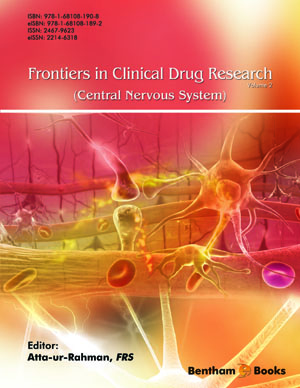Abstract
The development of nucleic acid-based therapeutics has recently aroused an increasing interest due to the great promise they hold for the treatment of a wide range of both inherited and acquired disorders. A prominent part in this field is played by neurodegenerative diseases, for which therapeutic interventions are currently limited to palliative and symptomatic treatment. Advances in the elucidation of the molecular mechanisms involved in these disorders provide the basis for developing nucleic acid-based treatment strategies able to address the molecular cause of the disease.
Several types of nucleic acid-based therapeutics have been proposed. All those therapeutics may be grouped into two main classes, i.e., protein coding nucleic acids (DNA molecules) and regulatory nucleic acids (DNA or RNA molecules). The use of nucleic acids belonging to the first class is aimed at providing the relevant cells with a protein that either permits to rescue a missing function or supplies a new function able to counteract or alleviate the disease. Regulatory nucleic acids are used in order to counteract the harmful effects of a specific gene in the relevant cells. They include several types of molecules that allow virtually any step of gene expression to be controlled. Regulation at transcriptional and post-transcriptional levels can be achieved by the means of oligonucleotides, catalytic nucleic acids, siRNAs and antisense RNAs, while protein synthesis and protein function can be inhibited by siRNAs and aptamers or decoys, respectively.
The delivery of genes coding for neurotrophic factors as neuroprotective/ neurorestorative agents is a favored strategy for the treatment of neurodegenerative diseases, but a number of alternative strategies have also been proposed, such as the use of aromatic-L-amino decarboxylase (AADC) encoding gene for Parkinson’s disease. More recently, advances in gene silencing technology have led to the evaluation of strategies aimed at selectively interfering with the pathogenetic mechanisms underlying disease phenotype, as in the case of Huntington’s disease where RNA interference technology could provide a tool to target the mutant HTT allele.
A prerequisite for the successful clinical application of nucleic acid-based therapeutics to the treatment of neurodegenerative diseases is the availability of safe and efficient systems for nucleic acid delivery to the central nervous system, or better to the relevant neuronal subpopulations depending on the specific disease. A few viral vectors, those based on the adeno-associated virus or lentiviruses in particular, have shown promise as neuron-targeted nucleic acid carriers and the clinical trials undertaken to date have employed viral vectors almost exclusively. However, viral vectors have several drawbacks, such as those resulting from a non-complete safety, that significantly limit their widespread clinical use. Consequently, a great deal of efforts to develop non-viral vectors for nucleic acid delivery to the central nervous system has been made in the recent years. Non-viral vectors offer several advantages including improved safety profiles, lower production costs and ability to target specific neuronal subpopulations, but their delivery efficiency has to be improved in order to thoroughly realize their potential in clinical settings.
This chapter illustrates the rationale and current status of nucleic acid-based strategies for the treatment of two neurodegenerative movement disorders, Huntington’s disease and Parkinson’s disease.
Keywords: CNS-targeted nucleic acid delivery, Huntington’s disease, movement disorders, neurodegenerative diseases, nucleic acid therapeutics, Parkinson’s disease.






















